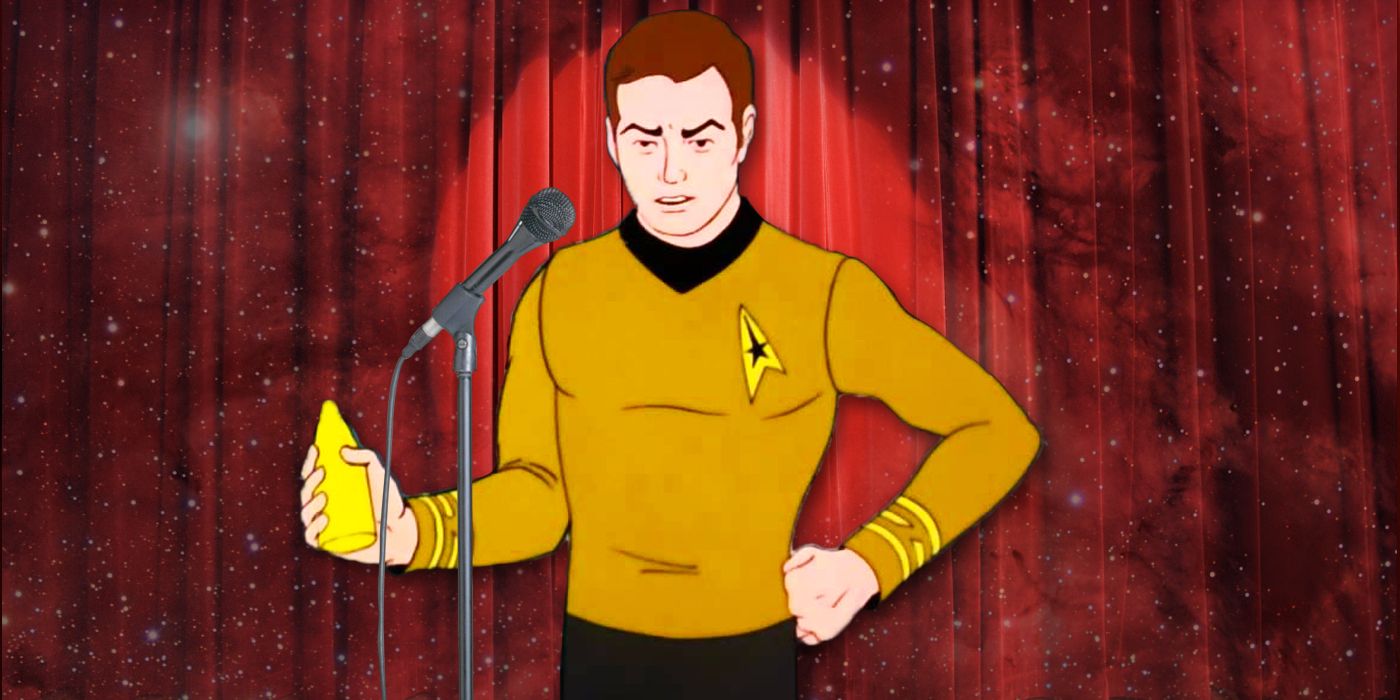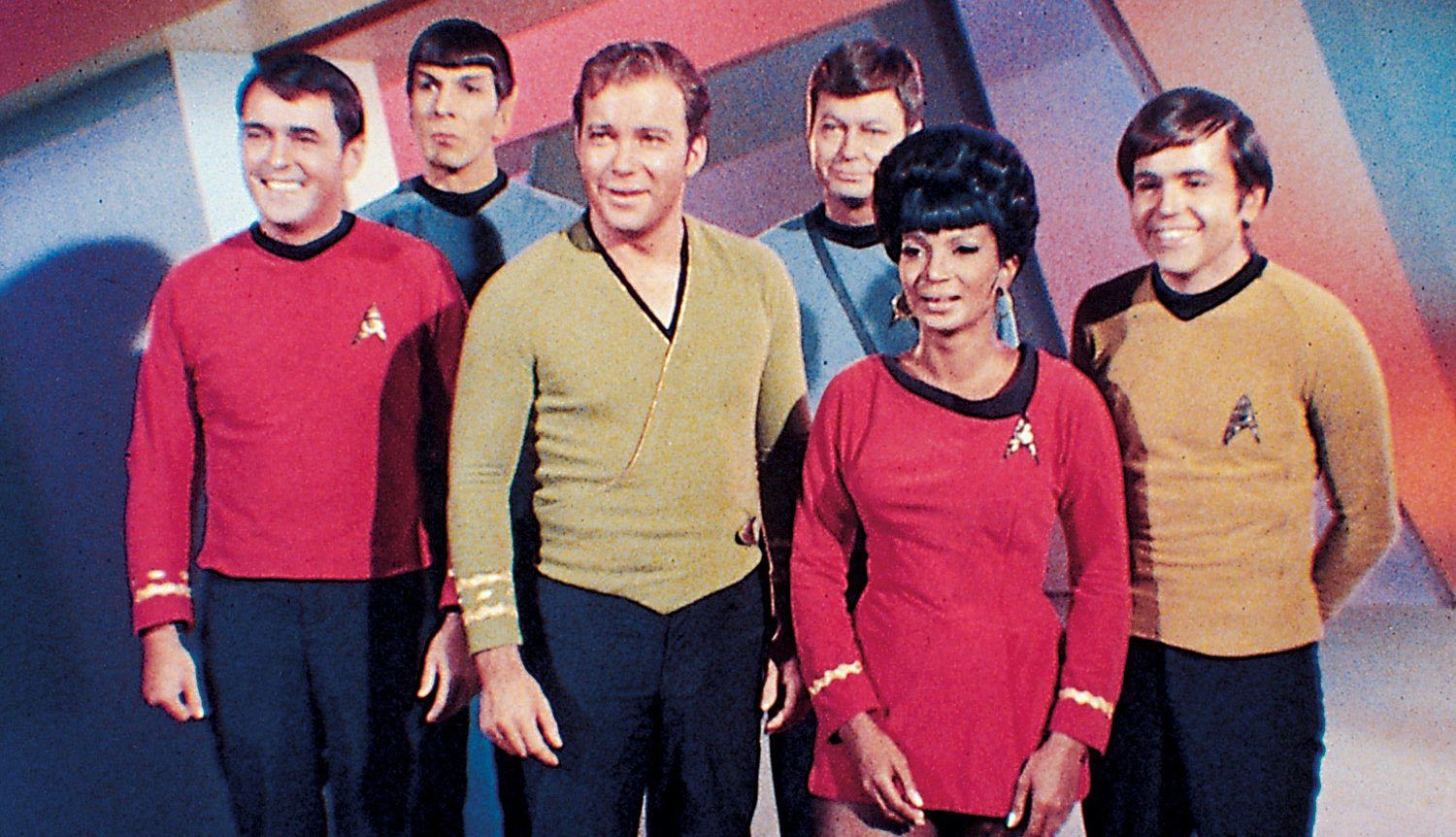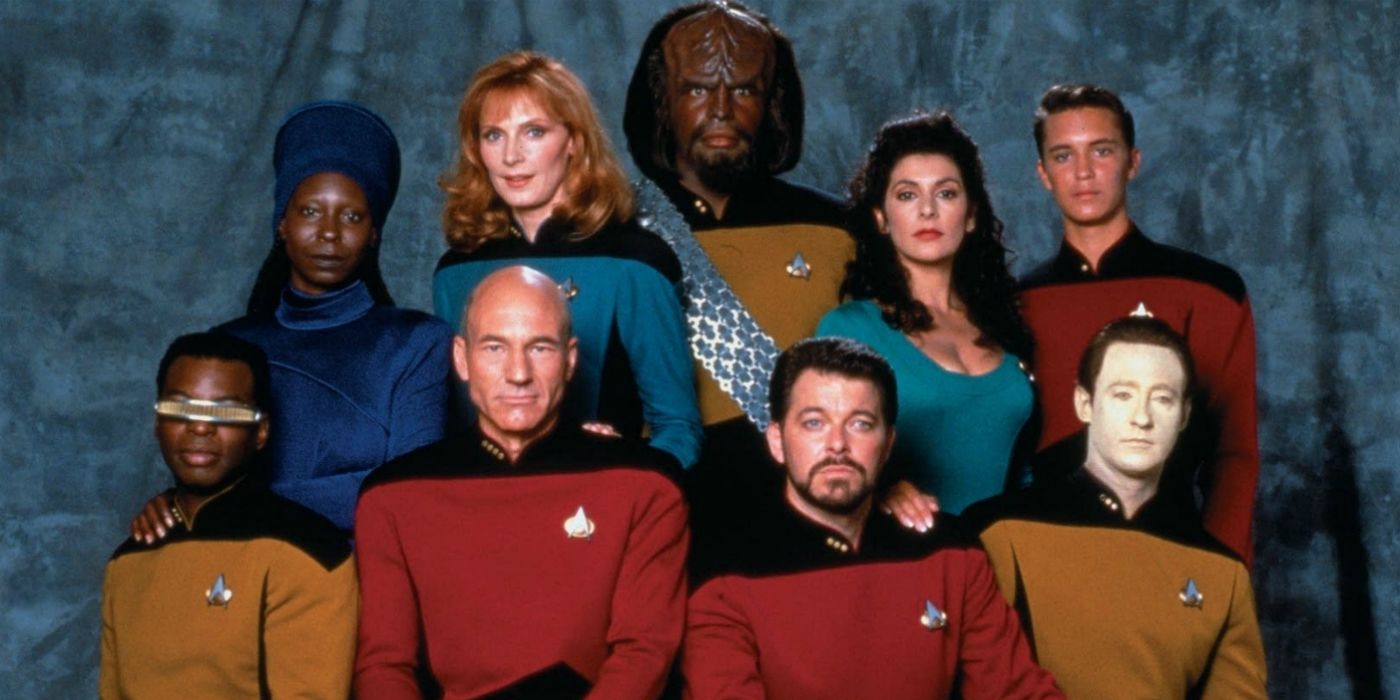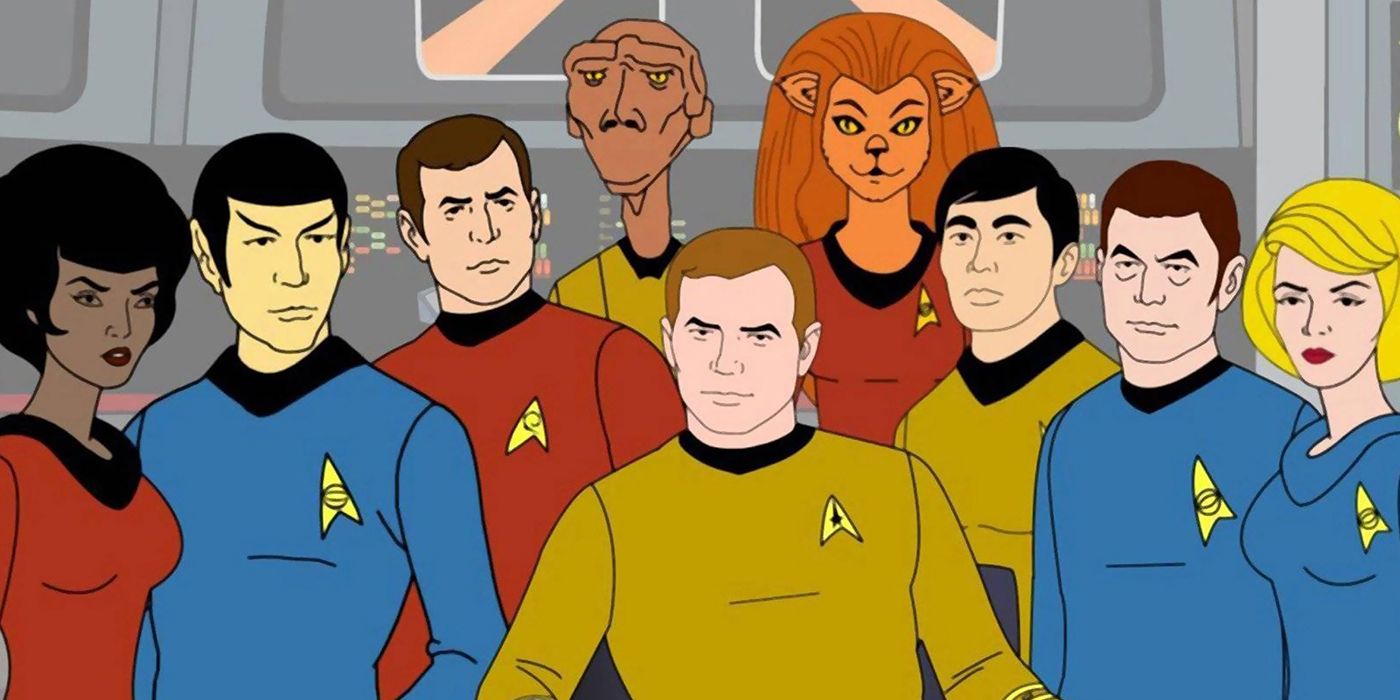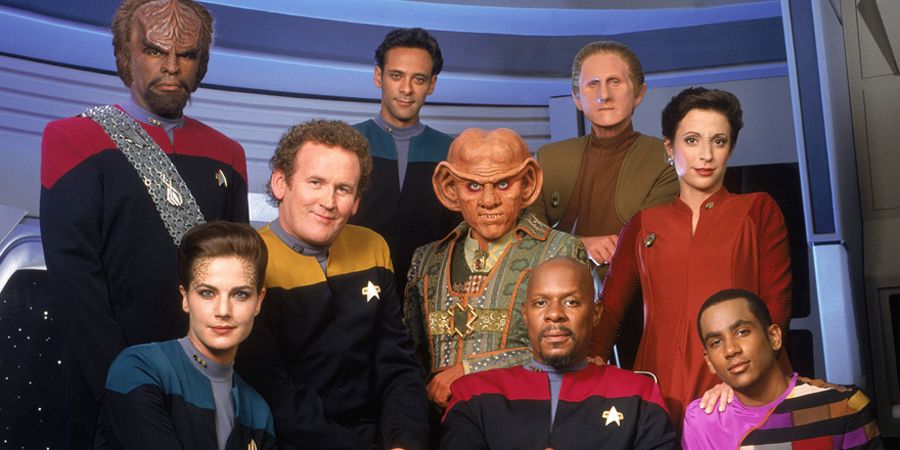On October 25, CBS announced plans to produce an animated Star Trek series called Lower Decks, which will be the very first Star Trek comedy. The animated series, penned by Mike McMahan (Rick & Morty), will follow less prominent members of Starfleet, or as McMahan describes it, the people who, “ put the yellow cartridge in the food replicator so a banana can come out the other end.”
As the first animated series the franchise has attempted since the original single season of Star Trek the Animated Series, the cartoon marks a new frontier for the Star Trek brand to explore. It also begs the question: why now?
RELATED: Star Trek Animated Comedy Series Being Written by Rick & Morty Scribe
Comedy has always surrounded Star Trek. As with most genre shows, it’s invited no shortage of parody (both good-natured and otherwise) in its staggering breadth of existence. Beyond parody, movies like Galaxy Quest and shows like The Orville prove there’s a place for more mainstream humor within the structure and tone of the universe Star Trek has created.
But Star Trek, despite -- and perhaps because of -- its mission to be a cultural beacon of progressive optimism, has always taken itself a bit too seriously to allow for the kind of humor that Lower Decks promises. So could comedy offer a new avenue for exploration?
Star Trek has long lived in a space of its own making; a science-fiction drama with an optimistic ethos that didn’t allow for the kind of darkness permeating other shows like Battlestar Galactica or The Expanse. At the same time, it also didn’t allow for much silliness.
After all, much of comedy is born of frustration and cynicism, so the idealism that is an integral part of Star Trek’s DNA also stood in the way of it ever getting too inane.
RELATED: Hilarious Star Trek: TNG Memes
But it’s that attitude of self-importance that invites comedy and helps it to thrive on Star Trek. There’s a reason characters like Q and Harry Mudd, and conceits like the Mirror Universe, remain fan favorites. It’s fun to see the unflinchingly altruistic and noble world of the Federation and Starfleet get a wet willy every once in a while.
Conversely, that’s part of why the darkness of Deep Space Nine resonated with so many – by inserting a little moral ambiguity into the Star Trek universe, it made the story more relatable and enduring. However, as with all comedy, timing is everything and there are several reasons a series like Lower Decks wouldn’t have gotten off the ground before now.
[valnet-url-page page=2 paginated=0 text='Star%20Trek%27s%20Past%20and%20Ambitious%20Future']
The bulk of Star Trek was produced by one team of people over the course of the '80s, '90s and '00s, and the tone set initially by Gene Roddenberry, and propagated by Rick Berman, Brannon Braga and Michael Piller later on, was fairly rigid. Very broadly, the idea was to write stories that would keep audiences focused outward, on the exploratory aspects of the show, as opposed to crew relationships and experiences.
RELATED: Out Of This World Theories About The New Captain Picard Show
The point was to create an allegorical space that allowed writers to tackle subject matter perhaps too disruptive or progressive for mainstream television, but easier to communicate when seen through the veil of science fiction. That meant the shows were sci-fi first, and dramas, romances and comedies second.
But as television evolved so dramatically in the years since Enterprise’s finale, so, necessarily, did Star Trek. Discovery embraced the elements of serialized storytelling and complex, sophisticated human drama that have become hallmarks of great television, but those things didn’t really exist in Star Trek before, or they only cropped up in certain episodes.
Aaron Harberts and Gretchen Berg evolved their storytelling in such a way that they created something new, but still inherently Trek. Arguably, that couldn’t have happened without the solid foundation set by the previous series, and it’s ultimately a positive outcome.
RELATED: Star Trek: The 25 Best Members Of Starfleet, Ranked
We’ve now seen how Star Trek, as a narrative, can successfully evolve beyond its original programming and still be well-received. That realization has opened up countless possibilities for new ways of telling stories, supported by the rich backdrop of Star Trek’s canon.
An animated comedy is kind of a deliciously ambitious way to explore said possibilities.
Putting aside the comedic aspect of Lower Decks, the fact that it’s animated also represents an exciting, new-ish frontier for Star Trek to explore. Animation has evolved leaps and bounds since TAS, both in technology and narrative sophistication. Shows like Rick & Morty and Bojack Horseman manage to occupy both comedic and dramatic spaces, and in doing so, have found new ways to explore the human condition.
Animation allows for more surrealism and absurdity than live-action television, just as any genre show allows for different creative opportunities than much of mainstream entertainment. Lower Decks will have both of those tools at its disposal. As such, the narrative possibilities are truly exciting.
RELATED: Unused Concept Art Even Devout Trekkers Have Never Seen
That said, expecting Lower Decks to push the same kind of boundaries as Bojack or Rick & Morty (or anything on Adult Swim) would probably be a mistake. This is still Star Trek, so odds are Lower Decks won’t feature the kind of cynicism that makes those shows unique. Still, even if it is just an animated version of “real” life in the Trek universe, it does promise something Star Trek has never fully embraced, and that’s poking fun at itself.
The real hook of this series will be what grabbed audiences and made The Orville and Galaxy Quest such enduring hits: good-natured fun at the expense of the tropes that have governed Star Trek for so long.
And it’s high time Star Trek join in on that fun.
This is a universe so well-behaved that no one’s ever been caught having relations in a holodeck, showing up for work hungover, talking smack about the captain and accidentally broadcasting it over the ship’s intercoms.
And no one pointed out how ludicrous it was that military women were running around in mini-dresses and go-go boots during that avant-garde period in Starfleet uniform design.
RELATED: The Best Star Trek Captains, Ranked
The above examples are things human people do – even the best human people. Arguably that’s why the character of Sylvia Tilly is so popular among fans (or even the Swear Trek Twitter account) – she’s a little rough around the edges in ways that haven’t really been characteristic of Starfleet officers, until now. There’s room for more of that in Trek, as well as self-referential humor -- ostensibly that’s what Lower Decks will try to deliver. That style itself is a universe ripe for exploration.
It may be that the final frontier for this generation of Star Trek isn’t a place, but rather the unknown possibilities of its own existence.

